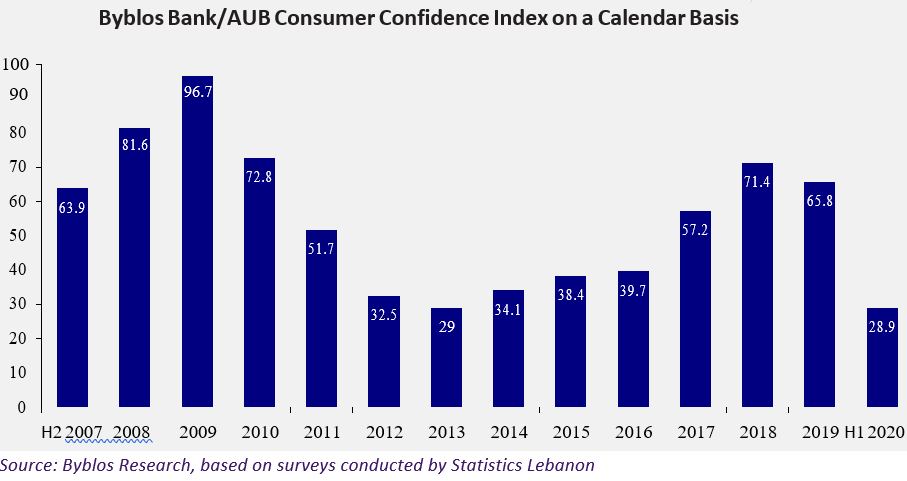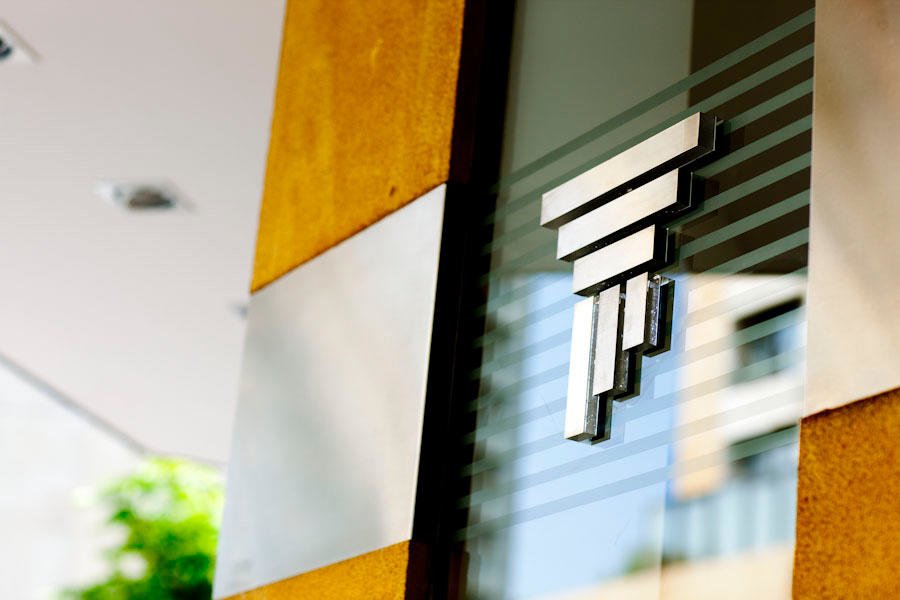
Consumer confidence falls to record low in Lebanon as crisis deepens
Consumer confidence in Lebanon has fallen to record low levels in the first half of 2020 as the country's economic crisis deepens.
The latest Byblos Bank/AUB Consumer Confidence Index fell to its lowest level since its inception in July 2007, registering 28.9 percent, reflecting the mounting frustrations of Lebanese citizens.
The index was published on the same day that Lebanon’s President tasked former Prime Minister Saad Hariri with forming a new government, bringing back the veteran politician a year after he was toppled amid nationwide protests against widespread corruption and a failing economy.
Hariri now faces a more impoverished Lebanon, devastated by the massive August port explosion, but also a more determined opposition.

The swift formation of an effective and credible government is seen as the first step towards restoring the confidence of households and improving their long-term outlook.
The Byblos Bank/AUB Consumer Confidence Index averaged 38.7 in the first quarter of 2020 and declined by 19 percent from the fourth quarter of 2019. It fell by 50.8 percent to an average of 19 in the second quarter of 2020.
Household sentiment has historically been influenced by political developments in Lebanon. However, this trend changed in the first half of 2020 as consumer confidence was mostly affected by prevailing socio-economic conditions in addition to political uncertainty.
Consumer sentiment retreated significantly in the second quarter due to the government's token action to tackle the economic crisis that was exacerbated by the outbreak of the coronavirus pandemic.
The results for the first half of 2020 reflected the uncertain outlook of Lebanese households about their future as only 1.4 percent of those polled expected their personal financial conditions to improve in the coming six months compared to 7 percent in the second half of 2019.
Eighty-three percent of respondents believed that their financial situation would deteriorate while 14 percent expected their financial conditions to remain the same.

A series of adverse events severely dented household sentiment during the first half of the year, including mounting financial pressures, the weakening of the Lebanese pound's exchange rate in the parallel market and the rising cost of living, the impact of the government's decision to suspend all payments on its outstanding Eurobonds starting in March, as well as the lockdown measures that the government enforced to contain the coronavirus pandemic.
The onset of nationwide protests in October 2019 raised the hopes of citizens for genuine political change and accountability but the sustained failure of political parties in power only dented household confidence further in the first six months of the year.
The Byblos Bank/AUB Consumer Confidence Index showed that only 0.3 percent of Lebanese polled in March considered that their personal financial conditions improved compared to six months earlier, edging up to 0.6 percent in June, while no-one considered that business conditions in Lebanon had improved in the same period (0.1 percent in June).
The shutdown of the economy due to the coronavirus pandemic led many companies to cut salaries or, in some cases, to lay off some of their employees, which further reduced households' income and increased their level of uncertainty in the second quarter of the year. The index dropped in April to its lowest level on record, only to drop further in May.
The results of the index for the first half of 2020 continue to reflect citizens' lost trust and increased scepticism about the ability of politicians to carry out much-needed reforms.










